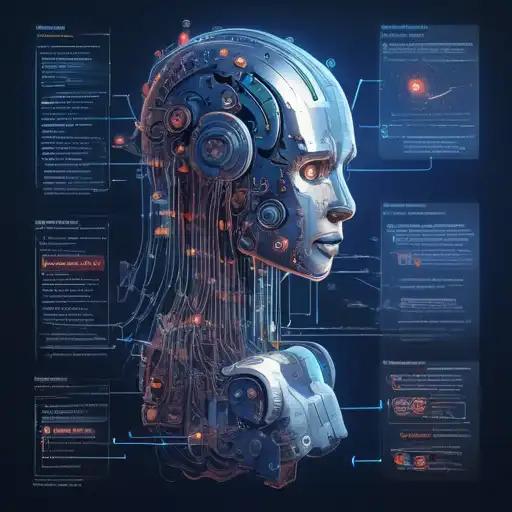Introduction to Machine Learning Algorithms
Machine learning algorithms are the backbone of artificial intelligence (AI) and data science, enabling computers to learn from and make decisions based on data. For beginners, understanding these algorithms can seem daunting, but this guide aims to simplify the concepts and provide a solid foundation.
What Are Machine Learning Algorithms?
Machine learning algorithms are mathematical models that allow computers to learn patterns from data without being explicitly programmed. They are broadly categorized into supervised, unsupervised, and reinforcement learning.
Types of Machine Learning Algorithms
Here’s a brief overview of the main types of machine learning algorithms:
- Supervised Learning: The algorithm learns from labeled training data, helping to predict outcomes for unforeseen data.
- Unsupervised Learning: The algorithm explores data without labeled responses to find hidden patterns or intrinsic structures.
- Reinforcement Learning: The algorithm learns by interacting with an environment, using feedback from its own actions and experiences.
Popular Machine Learning Algorithms for Beginners
Several algorithms are particularly accessible for beginners, including:
- Linear Regression: Predicts a continuous outcome based on one or more predictor variables.
- Logistic Regression: Used for binary classification problems, predicting the probability of a binary outcome.
- Decision Trees: A model that makes decisions based on asking a series of questions.
- K-Nearest Neighbors (KNN): Classifies a data point based on how its neighbors are classified.
How to Choose the Right Algorithm
Selecting the right algorithm depends on the problem you’re trying to solve, the size and nature of your data, and the computational resources available. Beginners should start with simpler algorithms and gradually move to more complex ones as they gain experience.
Practical Applications of Machine Learning Algorithms
Machine learning algorithms power many modern technologies, including:
- Recommendation systems (e.g., Netflix, Amazon)
- Speech recognition (e.g., Siri, Alexa)
- Image recognition (e.g., Facebook photo tagging)
- Autonomous vehicles (e.g., Tesla self-driving cars)
Getting Started with Machine Learning
For those interested in diving deeper, numerous resources are available, including online courses, tutorials, and books. Starting with a foundational course in machine learning can provide the necessary background to explore more advanced topics.
Machine learning is a rapidly evolving field, and staying updated with the latest trends and algorithms is crucial for anyone looking to make a mark in this area. Whether you're a beginner or looking to brush up on your knowledge, understanding these algorithms is the first step towards mastering machine learning.
For more insights into the world of AI and data science, check out our Data Science Basics guide.
